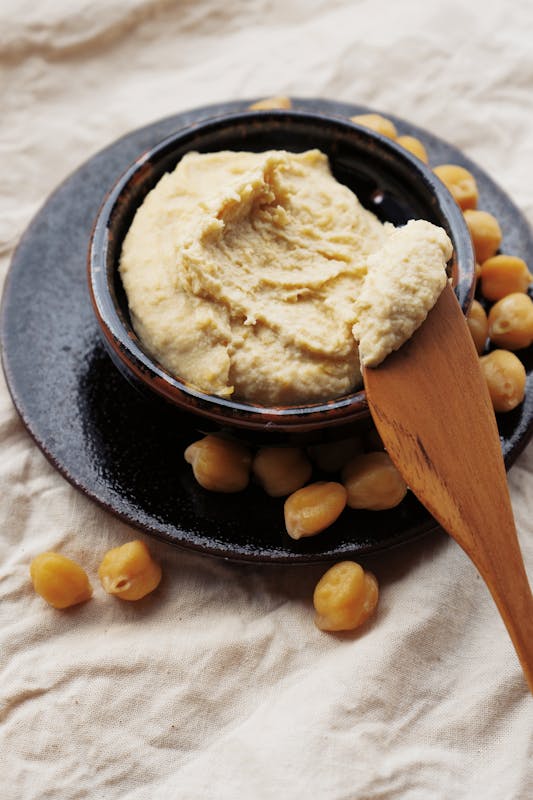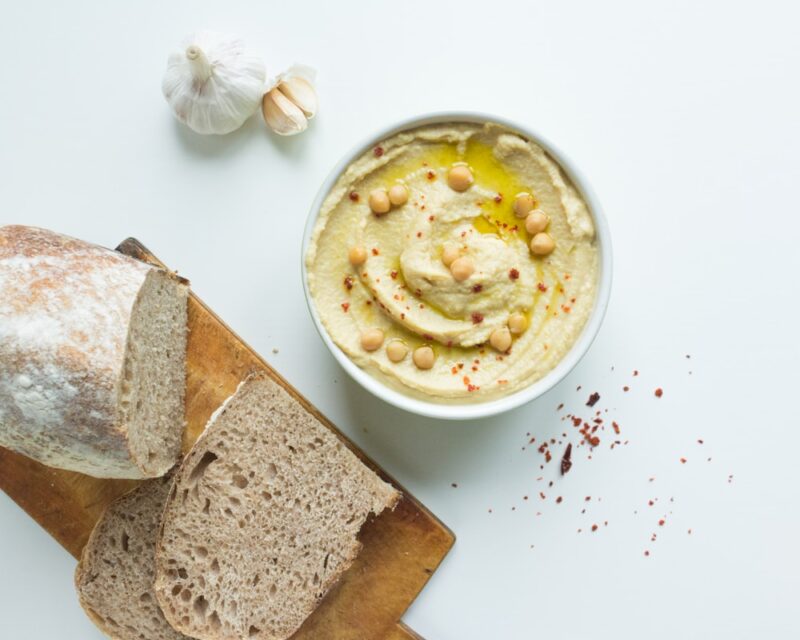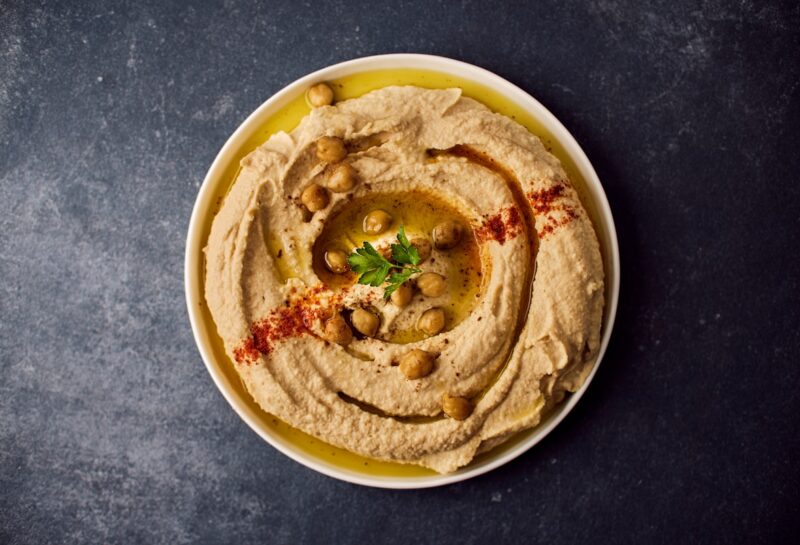Can you freeze hummus? In this article, we will explore the ins and outs of freezing hummus, providing a thorough understanding, practical tips, storage solutions, and recipe ideas to elevate this beloved dish.
Can You Freeze Hummus? The Answer
Yes, you can freeze hummus! Freezing is an excellent way to extend the shelf life of this delectable spread without losing its flavor or nutritional value. However, it’s important to understand that the texture may slightly change once thawed, affecting its creaminess. With proper preparation, you can minimize these texture changes and enjoy hummus long after you’ve made it.
How to Freeze Hummus: Step-by-Step Guide
Freezing hummus is a simple process. Here are the steps to ensure success:
1. Choose Quality Hummus
Whether homemade or store-bought, start with quality hummus. If homemade, allow it to cool down if it’s freshly made. For store-bought, ensure it’s fresh and not nearing its expiration date.
2. Portioning
Portion control is key to freezing hummus effectively. Consider how much you’d typically use at a time. Use ice cube trays or freezer-safe containers to portion smaller amounts. This helps prevent waste and makes it easier to thaw only what you need.
3. Freezer-Safe Containers
Opt for airtight containers or freezer bags. If using bags, remember to remove as much air as possible before sealing. If you prefer containers, leave a little space at the top, as hummus may expand slightly when frozen.
4. Label and Date
Always label your containers with the date and contents. This keeps track of how long your hummus has been in the freezer. Generally, hummus can last about 3 to 6 months in the freezer.
5. Freeze
Place the hummus in the freezer, ensuring it’s stored away from items that might cause it to develop off-flavors.
Thawing and Reconstituting Frozen Hummus
Once you’re ready to enjoy your frozen hummus, proper thawing is essential for preserving texture and flavor.
1. Overnight in the Fridge
The best way to thaw hummus is to move it from the freezer to the refrigerator the night before you plan to use it. This gentle thawing process helps maintain consistency.
2. Stir and Reblend
Once thawed, hummus may separate and lose some creaminess. Stir it well, and if needed, reblend it in a food processor with a splash of olive oil or a bit of water to restore its creamy texture.
3. Taste Adjustment
After thawing, you might find the flavor needs a little boost. Consider adding a touch more lemon juice, tahini, or garlic to enhance the taste.
Texture Transformation: What to Expect
While freezing hummus is generally safe and effective, it’s crucial to acknowledge that it may not come out with the same silky texture as when it was freshly made. The freezing process can cause the oils to separate, leading to slight graininess. However, with the right techniques after thawing, you can restore much of the original creaminess.
Factors Influencing Texture Change
Ingredients: The type of oil you use (olive oil vs. sunflower oil) and the thickness of your tahini can affect texture. Creamy tahini will lead to a smoother hummus after thawing.
Homemade vs. Store-bought: Homemade hummus, which often has fewer preservatives, might freeze differently compared to store-bought varieties, which may contain stabilizers.
Air Exposure: Air in the storage container can lead to freezer burn and unwanted texture changes. This is why airtight sealing is crucial.
Taste Matters: Flavors and Variations
Hummus is a canvas for creativity! Besides the classic garlic and lemon flavor, here are some fantastic variations to explore before freezing:
Roasted Red Pepper Hummus
Add roasted red peppers to the basic recipe for a sweet and smoky twist. The vibrant color and unique taste elevate your traditional hummus into something special.
Spicy Hummus
For those who love a kick, incorporate some diced jalapeños or a teaspoon of cayenne pepper into your recipe. This fiery alternative will bring life to your dip!
Herbed Hummus
Fresh herbs like basil or cilantro can transform the hummus into a refreshing delight. Blend them in, along with a hint of lime for a zingy flavor.
Beet Hummus
The natural sweetness and vibrant color of beets can give you a unique dish that stands out on any platter. Not only does it look appealing, but the earthy flavor pairs beautifully with chickpeas.
The Basics of Hummus
Before delving into the freezing process, let’s take a moment to appreciate what hummus is and why it has become a staple. Originating from the Middle East, traditional hummus incorporates just a few ingredients: chickpeas, tahini (sesame paste), olive oil, lemon juice, garlic, and salt. This simple blend packs a nutritional punch, offering fiber, protein, and essential vitamins.
Nutritional Benefits of Hummus
Hummus is not just a tasty addition to meals; it’s also a nutrient powerhouse. The chickpeas provide fiber, which aids digestion and promotes a feeling of fullness. Tahini contributes healthy fats, while lemon juice and garlic boast antioxidant properties. Incorporating hummus into your diet supports heart health, weight management, and overall well-being.
Using Thawed Hummus: Creative Recipes
Once your hummus is thawed, the possibilities for using it are endless. Here are some inventive ways to incorporate hummus into your meals:
Hummus on Toast
Swapping out butter or cream cheese for hummus on toast is a delicious and nutritious way to start your day. Top with avocado, sliced radishes, or a sprinkle of seeds for added crunch.
Hummus Pasta
Consider using hummus as a creamy sauce for pasta. Mix with cooked pasta, sautéed veggies, and a splash of water or broth to create a quick and healthy meal.
Hummus Salad Dressing
Transform your hummus into a salad dressing by thinning it with water or lemon juice. Drizzle it over greens for a flavorful twist.
Stuffed Shells
Use hummus as a stuffing for pasta shells, combined with spinach and feta for a hearty dish. Bake with your favorite marinara for a fusion of flavors.
Hummus Pizza
Spread hummus as a base on pizza dough instead of traditional sauce. Top with your favorite veggies and bake until crispy, offering a unique take on a classic favorite.
Common Misconceptions About Freezing Hummus
Despite the ease of freezing hummus, some misconceptions can lead to hesitations. Here are a few common myths debunked:
Myth 1: Freezing Ruins Hummus
While some texture changes may occur, properly frozen hummus can be just as tasty as fresh. Proper preparation and thawing methods can largely mitigate these issues.
Myth 2: Only Store-Bought Hummus Can Be Frozen
Many people assume that only commercial hummus can be frozen. In reality, homemade hummus is perfect for freezing. Just ensure you’re using quality ingredients and follow the steps outlined.
Myth 3: Hummus Has a Short Shelf Life After Freezing
With the right freezing practices, hummus can last much longer than many realize. It can be stored for several months without substantial loss in flavor or nutritional value.
Conclusion
In the end, freezing hummus is not only possible; it opens a world of convenience and deliciousness. This creamy, nutritious dip can be enjoyed long after it’s made, allowing for spontaneity in your meals without the pressure of consuming it all right away. Through proper preparation, thawing, and a sprinkle of creativity, frozen hummus can stand shoulder to shoulder with its fresh counterpart, making it a flexible addition to any kitchen.









